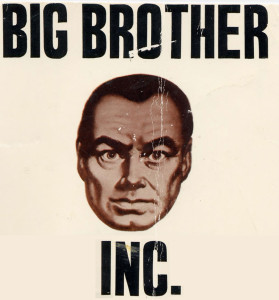Despite what you might think it, appears the fiercely guarded liberal tradition of the United Kingdom is giving way to guarded acceptance of Big Brother. It turns out that as long as it pays off we’re more than happy to give away our details to brands.
How happy users are with sharing their information depends greatly on what a information they’re asked to give – and what they get in return.
In a survey organised by marketing and analytics firm, Webtrends, 58 per cent of the respondents said that they weren’t concerned about the amount of data they share with brands. What may come as less of as a surprise is that 68 per cent of what many are calling “Generation Overshare”, the 18-25s brought up with the Internet, is the least concerned with handing out their private details.
All of this makes sense to John Fleming, Marketing Director at Webtrends: “Younger generations have grown up in a far more connected, data-centric world” he said, highlighting that they were the ones who recognised the benefit of sharing personal info with their favourite brands.
“This opens the door for companies to be more creative and innovative in how they use customer data.” He continued: “For example, we’re starting to see exciting steps forward in the field of contextual personalisation, which brings together historical online data with real-time factors such as the user’s device, location and time of day to create a uniquely personal, in-the-moment experience.”

Brought up with social media “Generation Overshare” mind less what happens to their data. (Source: Summer)
That said, how happy users are with sharing their information depends greatly on what a information they’re asked to give – and what they get in return.
Whilst 64 per cent of Brits were happy to give their name and email address away to a retail brand, only 17 per cent felt the same about giving up more personal info like home address or income level. In exchange for sharing their details, though, it seems people expect more than a free lunch: one in three say they could be persuaded to give up their personal data for a discount on clothes (36 per cent), free delivery (31 per cent) or a discount on a holiday or travel (28 per cent).
Telling a brand about yourself gives that brand an opportunity to personalise their offers and that, Fleming believes, is of utmost importance “Relevancy ultimately breeds trust, and as brands continue to enhance and personalise their customers’ experiences, the perception of these brands improves and data sharing increases.” Not everyone’s going to jump at the chance to tell a brand everything about their life but make it relevant and worth their while and your chances really do increase. Big Brother’s watching you shop and it seems we’re all OK with that.






